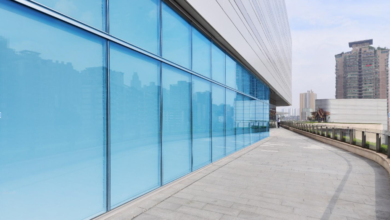
Understanding Factors Affecting Singapore PR Approval A Deep Dive into Your Immigration Journey
The Factors Affecting Singapore PR Approval represent a complex interplay of demographic, economic, and social variables that shape the nation’s careful approach to permanent residency. Understanding these factors requires us to examine how Singapore, a young nation-state, has engineered its immigration policies to maintain social harmony while fostering economic growth.
The Historical Context of Singapore’s Immigration Framework
Singapore’s transformation from a trading port to a global financial hub has been intrinsically linked to its immigration policies. The Immigration and Checkpoints Authority (ICA) reports that PR approvals have maintained a steady rate of 30,000 to 35,000 annually over the past decade, reflecting a carefully managed approach to population growth.
Core Assessment Criteria
The evaluation process considers several fundamental elements:
- Economic Contributions
- Current employment status and stability
- Income level and tax contributions
- Industry sector relevance to Singapore’s economy
- Educational Qualifications
- Academic achievements
- Professional certifications
- Continuous learning and development
- Duration of Stay
- Length of residence in Singapore
- Community integration
- Social contributions
Statistical Insights and Demographic Patterns
Recent government data reveals telling patterns:
- PR approval rates vary by nationality, with higher success rates from:
- Countries with similar cultural backgrounds
- Nations with strong economic ties to Singapore
- Regions with compatible educational systems
- Age demographics show:
- 35% of successful applicants are between 25-35 years
- 28% fall within 36-45 years
- 22% are under 25 years
- 15% are above 45 years
Professional Profile Impact
The Ministry of Manpower’s statistics indicate that certain professional profiles demonstrate higher approval rates:
- Technology sector professionals (32% approval rate)
- Healthcare workers (28% approval rate)
- Financial services specialists (25% approval rate)
- Education sector employees (20% approval rate)
Family Ties and Integration Factors
Social integration plays a crucial role:
- Marriage to Singapore citizens increases approval chances by approximately 40%
- Having Singapore-born children raises the probability by 35%
- Active community involvement demonstrates commitment to Singapore society
Economic Stability Indicators
Financial stability remains paramount:
- Minimum annual income thresholds vary by sector
- Consistent employment history (typically 2-3 years minimum)
- Evidence of long-term financial planning in Singapore
The Integration Challenge
The government emphasises cultural integration through:
- Language proficiency (particularly English and mother tongue languages)
- Understanding of local customs and social norms
- Participation in community activities
Future Outlook and Strategic Considerations
Singapore’s Population White Paper projects:
- A total population of 6.5-6.9 million by 2030
- PR population to remain stable at 500,000-600,000
- Continued emphasis on quality over quantity in PR approvals
Digital Age Considerations
Modern applications increasingly consider:
- Digital literacy and technological adaptability
- Involvement in Singapore’s Smart Nation initiatives
- Contributions to digital economy sectors
Risk Factors and Common Pitfalls
Several elements may negatively impact applications:
- Inconsistent employment history
- Criminal records or security concerns
- Poor tax compliance
- Limited social integration evidence
Documentation and Preparation
Success often correlates with:
- Comprehensive documentation
- Clear evidence of contributions
- Well-articulated integration plans
- Strong recommendation letters
Geographic and Cultural Considerations
Data suggests varying approval rates based on:
- Country of origin
- Cultural compatibility
- Historical ties with Singapore
- Regional economic relationships
In conclusion, Singapore’s PR approval system represents a sophisticated mechanism for population management and national development. Understanding these various elements allows applicants to better position themselves for success, though it’s important to note that meeting all criteria doesn’t guarantee approval. As Singapore continues to evolve in response to global changes, the Factors Affecting Singapore PR Approval will likely continue to adapt, reflecting the nation’s dynamic approach to immigration and population management.




